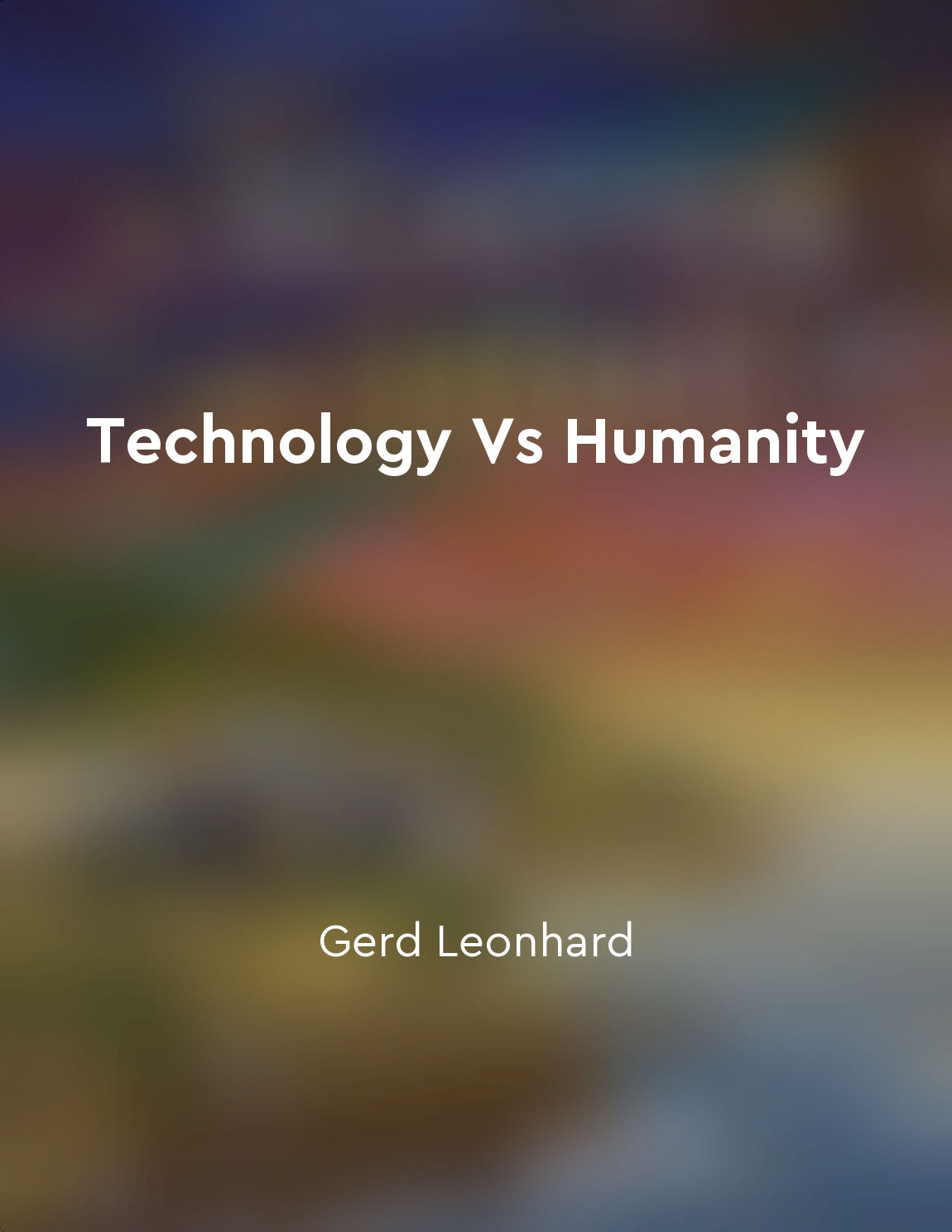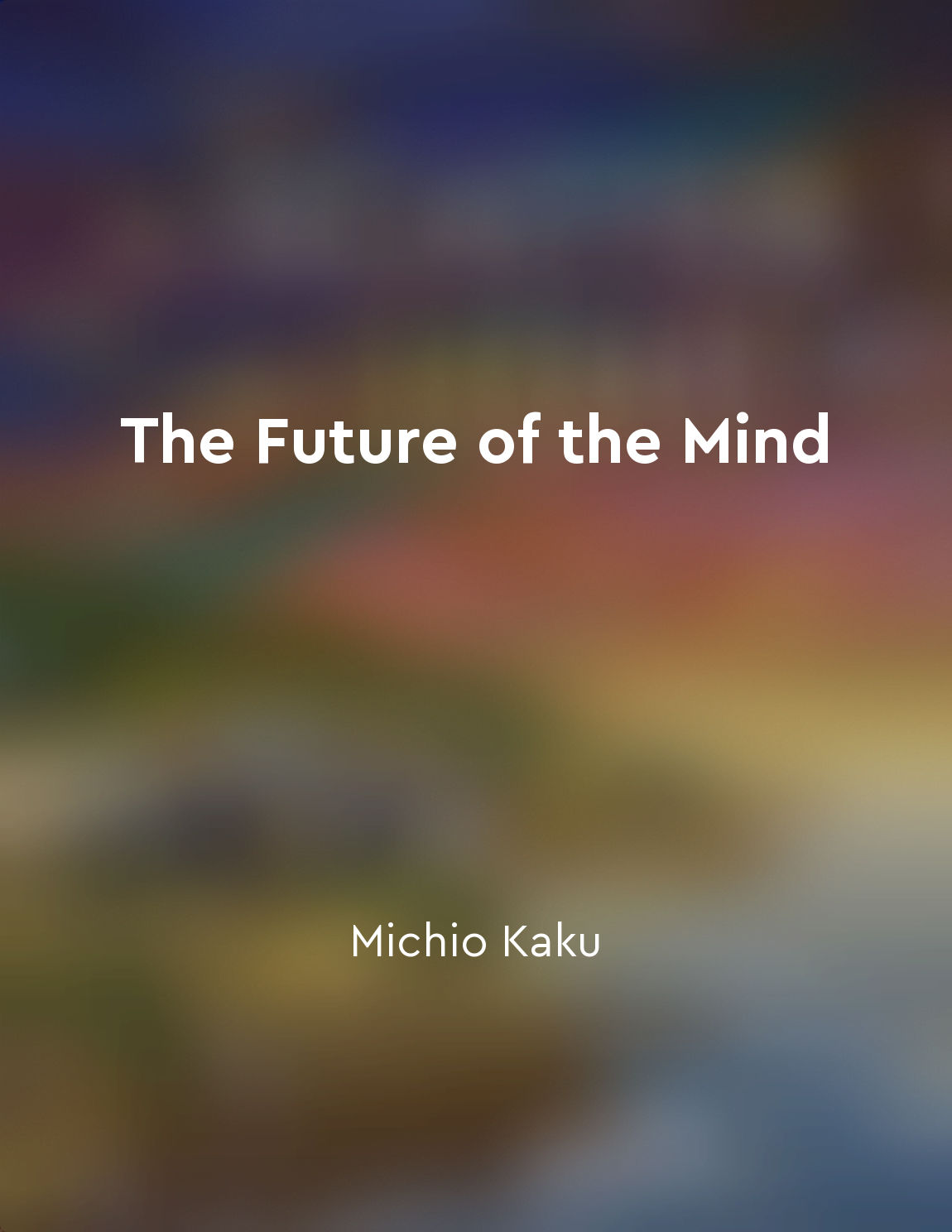Ethical concerns must be addressed with emerging technologies from "summary" of The Future of the Mind by Michio Kaku
As we plunge headfirst into a future where our understanding of the mind is poised to undergo revolutionary transformation, it becomes imperative to heed the ethical implications that accompany the development of cutting-edge technologies. The breathtaking advances in neuroscience and artificial intelligence have the potential to unlock profound insights into the inner workings of the brain, offering tantalizing prospects for enhancing human cognition and even manipulating our thoughts and emotions. However, this very promise of unprecedented power over the human mind gives rise to a host of ethical dilemmas that cannot be ignored. The ability to peer into a person's thoughts, to manipulate memories, or to control emotions raises troubling questions about privacy, autonomy, and the very essence of what it means to be human. As we stand on the brink of a new era where brain-computer interfaces and mind-reading technologies are no longer the stuff of science fiction, we must confront the ethical challenges that come hand in hand with these remarkable advancements. One of the central concerns that looms large on the horizon is the issue of consent. With the ability to access and manipulate the most intimate aspects of a person's mind, the question of who has the right to control this information becomes paramount. Will individuals have the autonomy to decide how their thoughts are used and shared, or will they be vulnerable to exploitation by those who wield these powerful technologies? Moreover, the potential for inequality and discrimination looms large in a future where access to mind-enhancing technologies may not be equally distributed. Will these advancements exacerbate existing social divides, creating a new class of cognitive elites who wield unprecedented power over those who are left behind? The ethical imperative to address these disparities and ensure that the benefits of emerging technologies are shared equitably is clear. As we navigate the uncharted waters of this brave new world, it is essential that we engage in thoughtful reflection and dialogue about the ethical dimensions of our technological pursuits. Only by confronting these ethical concerns head-on can we hope to harness the full potential of emerging technologies while safeguarding the values that define our humanity. The future of the mind holds immense promise, but it is only by grappling with the ethical challenges that accompany this journey that we can ensure that this promise is realized in a way that is both responsible and just.Similar Posts

Money is a fictional concept that maintains social order
Money is a curious thing. It is not a physical reality like a tree or a rock. You cannot eat it, drink it, or wear it. Yet, it ...
AI systems should understand human intentions
AI systems must be able to understand human intentions in order to work effectively with us. This understanding is crucial beca...

General Stubblebine believed that staring at goats could kill them
General Stubblebine truly believed that staring at goats could kill them. He wasn't joking or being ironic. He was deadly serio...

Prioritize human relationships over digital distractions
In our hyper-connected world, it is all too easy to become consumed by digital distractions. We are constantly bombarded with n...
The potential benefits of humancompatible AI are vast
The potential benefits of human-compatible AI are vast. By designing AI systems to align with human values and objectives, we c...

The future of the mind is a limitless frontier waiting to be explored
The human mind is a complex and enigmatic entity that has fascinated scientists and philosophers for centuries. It is the seat ...

Braincomputer interfaces could enhance human intelligence
One of the most intriguing possibilities of the future lies in the development of brain-computer interfaces. These revolutionar...

Scientific knowledge empowers humanity
Scientific knowledge has been a key factor in empowering humanity throughout history. It has enabled us to understand the world...

The Big Nine must be held accountable for their actions
The largest technology companies in the world — Amazon, Google, Facebook, Apple, Microsoft, IBM, Alibaba, and Tencent — are col...
Education and retraining programs will be crucial in adapting to the AIdriven economy
As we transition into an AI-driven economy, the role of education and retraining programs becomes increasingly vital. The rapid...
